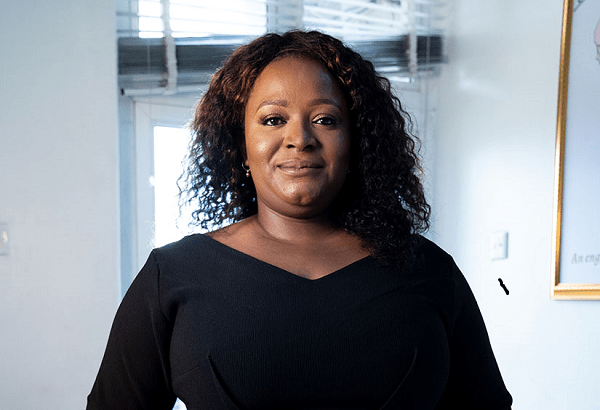Throughout the history of mankind, healthcare delivery has witnessed the extraordinary contributions of women, whose passion to save lives has become an enviable legacy. From the contributions of Florence Nightingale to nursing to the heroic acts of Clara Barton which led to the establishment of the American Red Cross, the history of healthcare is indeed replete with women whose impact is unquantifiable.
In this regard, the immense impact of Temie Giwa-Tubosun in healthcare in Africa is a reminder that history has a way of repeating itself. What began as a yearning and passion to save lives for Temie has now evolved to a fully blown social enterprise affecting thousands of lives across Africa.

Temitope Giwa-Tubosun, popularly known as Temie, is a Nigerian-American health manager and founder of LifeBank (formerly called One Percent Project), a Nigerian-based social enterprise, working to improve access to safe blood transfusions and other essential medical products across Africa.
In Nigeria, blood shortages are responsible for innumerable complications for women immediately after childbirth and contribute to the deaths of 152,000 anaemic children and 37,000 pregnant women each year. The World Health Organisation (WHO) has identified postpartum haemorrhage as a major cause of maternal mortality worldwide, with women in developing countries at a higher risk.
Temie started LifeBank in 2016 to bring vital medical supplies like emergency medical oxygen cannisters, platelets, plasma, vaccines and most especially blood, to people who need them, when they need them and in the right condition. Since its launch, the company has transported more than 20,000 units of blood and other medical products, served about 500 hospitals, engaged over 6000 donors, and saved about 8000 lives.
Background and education
Temie was born on December 1985 in Ila Orangun, Osun State, Nigeria. The fourth of six children, Temie’s father was a university professor and her mother was a secondary school teacher. She grew up in Ila, Ilesha, and in Ibadan until she was 15. Five years earlier, when she was ten, her parents won the US Diversity Immigrant Visa and left for the United States with the three older siblings. In 2001, at 15, Temie left to join them with her two younger siblings.
Temie attended Osseo Senior High School, Minnesota, and graduated in 2003. That same year she gained admission to Minnesota State University, Moorhead, and graduated in 2007 with a B.A degree in Political Science. In 2008, she was admitted to the graduate school at Middlebury Institute of International Studies, at Monterey, from where she received her master’s degree in Public Administration, Health Systems Management and International Management in July 2010.
Journey to LifeBank
In 2009, after Temie’s first year in graduate school, she returned to Nigeria for the first time since 2001 for her internship in Abuja. The internship programme lasted three months, during which she had an encounter with a poor mother, called Aisha, whose protracted labour convinced her of the problem of maternal mortality in Nigeria.
Inspired by this encounter, she went for a graduate fellowship at the World Health Organisation in Geneva, Switzerland, in January 2010 which lasted till July of that year when she graduated from Middlebury Institute of International Studies at Monterey. In August 2011, she began a fellowship with the Global Health Corps, and spent the next 12 months at Mbarara, Uganda, working with the Millennium Villages Project, a programme of the United Nations and Millennium Development Goals.
In May 2012, Temie founded a non-governmental organisation called One Percent Blood Donation Enlightenment Foundation or One Percent Project, with the aim of ending blood shortage, using an efficient distribution network of blood in blood banks in Nigeria. The initiative was involved in educating people on the importance of blood donation and to help them overcome fears, prejudice, myths and apathy in blood donation.
Temie’s experience with WHO, UN and the One Percent Project was the harbinger to her establishment of LifeBank in January 2016, about two years after the complicated child delivery of her first child and seven years after her encounter with Aisha, the young mother she had met in Kano, who nearly died after three days of labour.
LifeBank, which started as a healthcare technology and logistics service company, has grown to become an important player in Nigeria’s healthcare industry. The company has currently scaled up its operations to other African countries, after receiving multiple awards, grants and funding.
In 2019, LifeBank started using drones to deliver emergency medical supplies in Ethiopia. The company also has built a system that uses block chain technology to record and preserve the integrity of information about the blood supply.
LifeBank’s ambitious mission is to save a million lives across Africa in 10 years and to reach all of Africa, India, Southeast Asia, and South America, to deliver critical supplies around the clock.
Awards and recognitions
In May 2017, Temie was selected as part of “six entrepreneurs who demonstrate the positive role women are playing in creating opportunities and preparing the region for the Fourth Industrial Revolution” by the World Economic Forum on Africa.
That same month, she was listed in the annual Quartz African Innovators List of “more than 30 Africans” who are “taking leadership and control in a wide range of fields”, including finance, healthcare, education, agriculture, design and many other fields.
Mark Zuckerberg, founder of Facebook, on his first visit to Nigeria in 2016, acknowledged the work Temie is doing, saying: “If everyone had the opportunity to build something like this (LifeBank), then the world would be a better place… I’ve been to a lot of different cities, people around the world are trying to build stuff like that…”
On 16 November, 2019, Temie was named the winner of Jack Ma’s Africa Netpreneur Prize worth $250,000. The prize-giving ceremony, which held in Accra, Ghana got applications from more than 10,000 startups from 50 African countries.
In addition, Temie has been announced as the 2020 Laureate for Sub-Saharan Africa, winning the sum of US$ 100,000 in grant at the 2020 edition of Cartier Women’s Initiative. The Cartier Women’s Initiative, which was founded in 2006, has helped women over the years to reach their full potential by highlighting their achievements, while providing them with the necessary financial, social and human capital support in growing their businesses and leadership skills.
Temie is happily married to Kola Tubosun who is a writer and linguist. They live in Lagos with their son, Eniafe.











We’re a group of volunteers and opening a new scheme in our community. Your website provided us with valuable info to work on. You’ve done an impressive job and our whole community will be grateful to you.